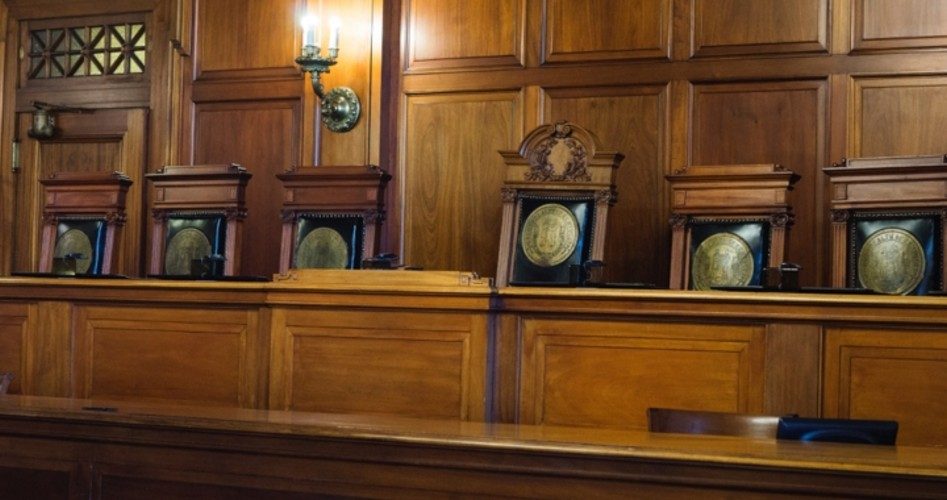
The Kentucky Supreme Court made a significant First Amendment ruling October 31, dismissing a seven-year-old case against a t-shirt company whose Christian owner declined to do business with a homosexual group.
In its decision the high court ruled that the Gay and Lesbian Services Organization (GLSO), a Lexington-area homosexual activist group, did not have legal standing to sue the t-shirt company Hands on Originals, or owner Blaine Adamson, for declining to provide shirts with a pro-homosexual message that conflicted with Adamson’s Christian convictions.
The case dates back to 2012, when GLSO chose Hands on Originals to print gay-themed t-shirts for a local Lexington homosexual gay “pride” event. When Adamson declined, citing his Christian beliefs, referring GLSO to other companies who would provide the service, the group filed a discrimination suit with the Lexington-Fayette Urban County Human Rights Commission.
Two years later the commission ruled that Adamson had violated the city’s anti-discrimination ordinance, and as punishment required him to go through “diversity” training.
Adamson and his legal representatives, the First Amendment advocacy group Alliance Defending Freedom (ADF), challenged the decision and were victorious in a Kentucky court in 2017. The Lexington Human Rights Commission in turn appealed the case to the state supreme court, which ruled in Adamson’s favor, finding that GLSO “lacked statutory standing” to make a discrimination claim against Adamson and his business.
Key to the case ruling was the court’s finding that while Adamson had inquired about the nature of the event for which GLSO had requested him to print t-shirts, he did not inquire into the sexual orientation of the organization’s representatives, meaning that there was no intent to discriminate against an individual.
Writing for the court, Justice Laurance VanMete noted “the record is clear that no individual claimed Hands On had discriminated. Because GLSO itself was the only plaintiff to file a claim … and it did not purport to name any individual on whose behalf it was bringing the claim, GLSO lacked the requisite statutory standing.”
In a concurring opinion, Justice David Buckingham wrote that the Lexington human rights commission attempted to compel Adamson and Hand on Originals “to engage in expression with which it disagreed.” Observed Buckingham in his opinion: “Hands On was in good faith objecting to the message it was being asked to disseminate,” adding that when speech is compelled, “individuals are coerced into betraying their convictions. Forcing free and independent individuals to endorse ideas they find objectionable is always demeaning.”
In August, while the Kentucky Supreme Court heard oral arguments in the case, Adamson explained his personal position to reporters, telling them that “I will work with any person, no matter who they are, and no matter what their belief systems are. But when I’m presented with a message that conflicts with my faith, that’s just something I cannot print.”
Following the Supreme Court decision, ADF Senior Counsel Jim Campbell said the ruling “makes clear that this case never should have happened. For more than seven years, government officials used this case to turn Blaine’s life upside down, even though we told them from the beginning that the lawsuit didn’t comply with the city’s own legal requirements.”
Campbell added that “the First Amendment protects Blaine’s right to continue serving all people while declining to print messages that violate his faith. Justice David Buckingham recognized this in his concurring opinion, and no member of the court disagreed with that.”
Photo of Kentucky Supreme Court: wanderluster/iStock/Getty Images Plus

